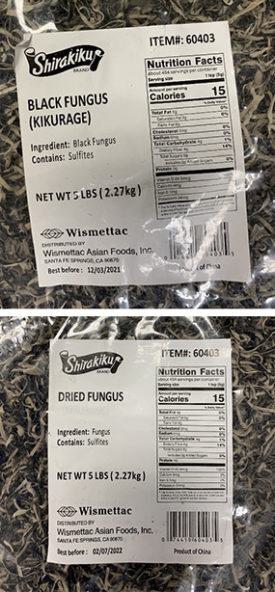In Autumn 2020, Marler Clark investigated an outbreak of Salmonella Stanley linked to wood ear mushrooms.
As of September 24, 2020, at least 41 people infected with the outbreak strain of Salmonella Stanley had been reported in ten states. An edible fungus, often called wood ear mushroom, seemed to be linked to the outbreak. Salmonella cases were reported in Arizona (1), California (25), Connecticut (1), Georgia (1), Illinois (5), Louisiana (1), New Jersey (2), New York City (1), Pennsylvania (2) and Wisconsin (2).
Epidemiologic evidence and traceback investigations pointed to wood ear mushrooms, distributed by Wismettac Asian Foods Inc., as the likely source of the Salmonella illnesses. These mushrooms, often referred to as Kikurage, Dried Black Fungus, or Mu'er/Mu Er/Mu-Err, were distributed to restaurants in 32 states as well as Canada.

Ill people were interviewed about what they had eaten and other exposures in the week prior to their illness. Of the eighteen people interviewed, 16 reported eating ramen at a restaurant in the week before the symptoms began. Many of the victims reported eating at the same ramen restaurants, demonstrating that they may all have been part of the same illness clusters.
Illnesses started on dates ranging from January 21, 2020, to August 26, 2020. Females represent sixty-two percent of those ill with the median age of those sickened being 27. Of the 32 interviewed, four people were hospitalized. No deaths were reported.
FDA and local health officials are conducted a traceback investigation to help identify the source of the tainted wood ear mushrooms. Records indicated that illness cluster restaurants were supplied with wood ear mushrooms (dried fungus) by Wismettac Asian Foods, Inc..
California health investigators found the Salmonella in samples of the dried fungus which prompted a recall of all Shirakiku mushrooms imported by Wismettac Asian Foods, Inc.